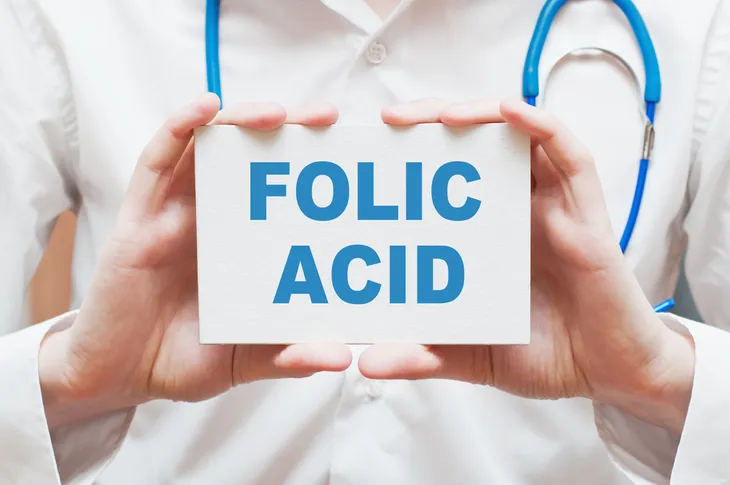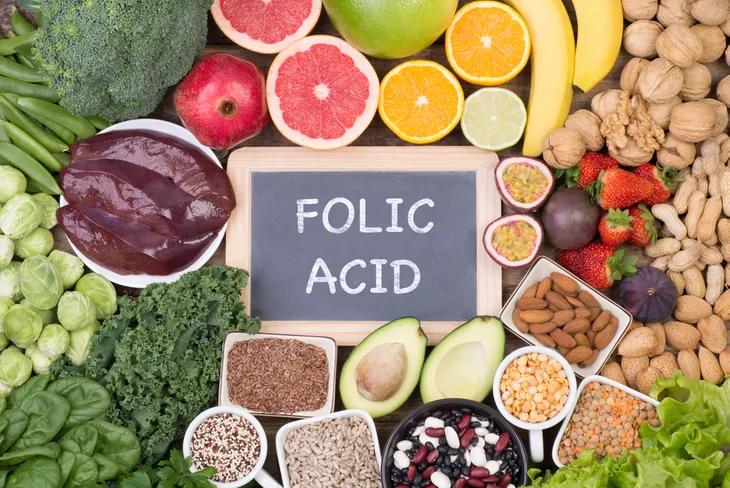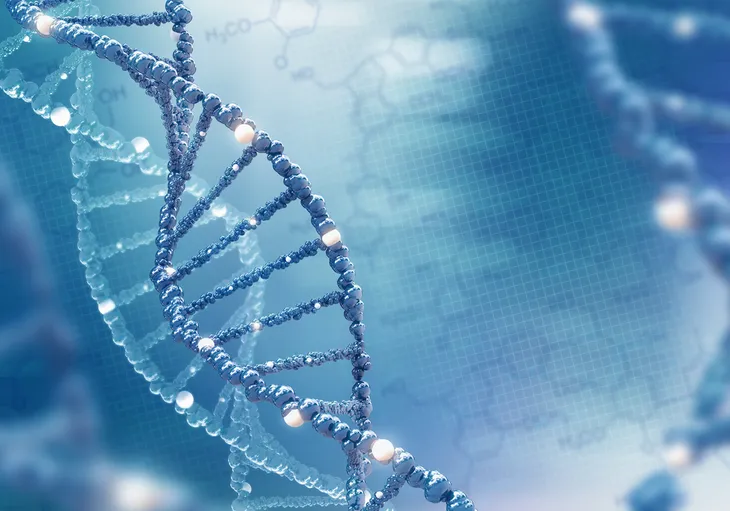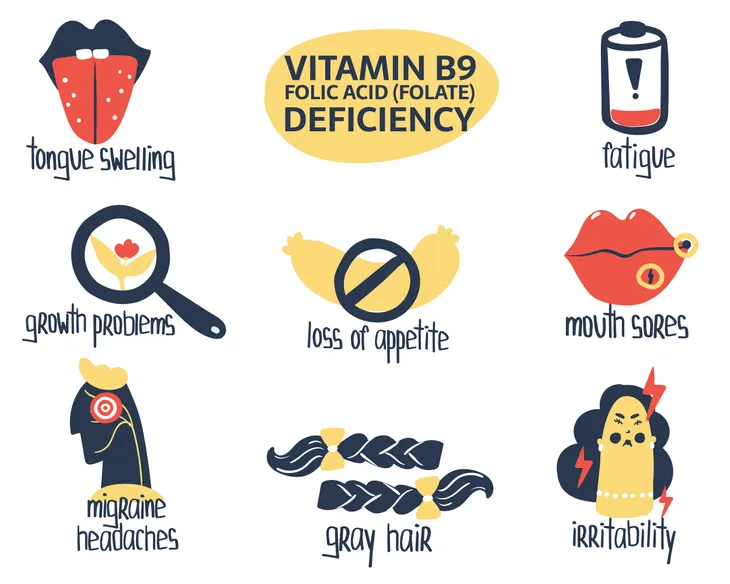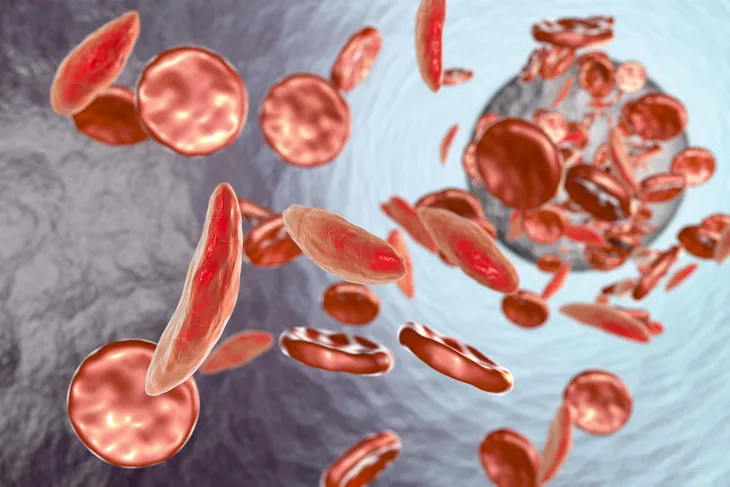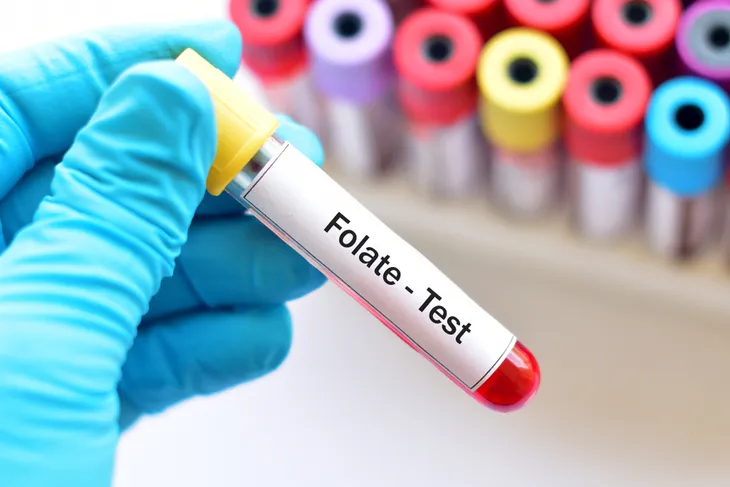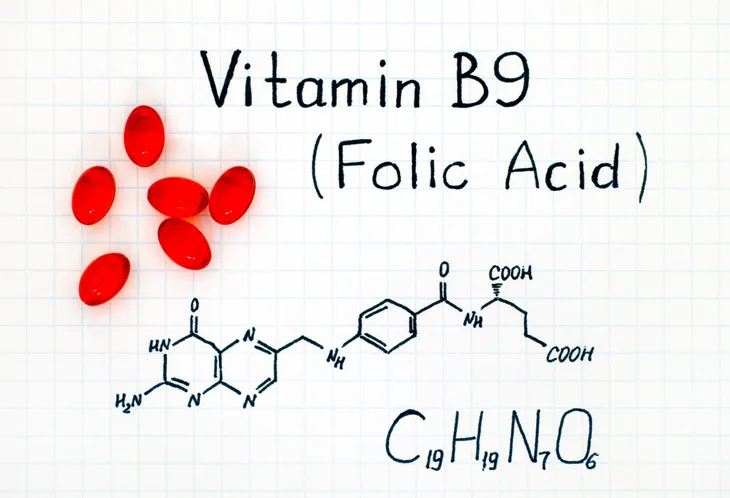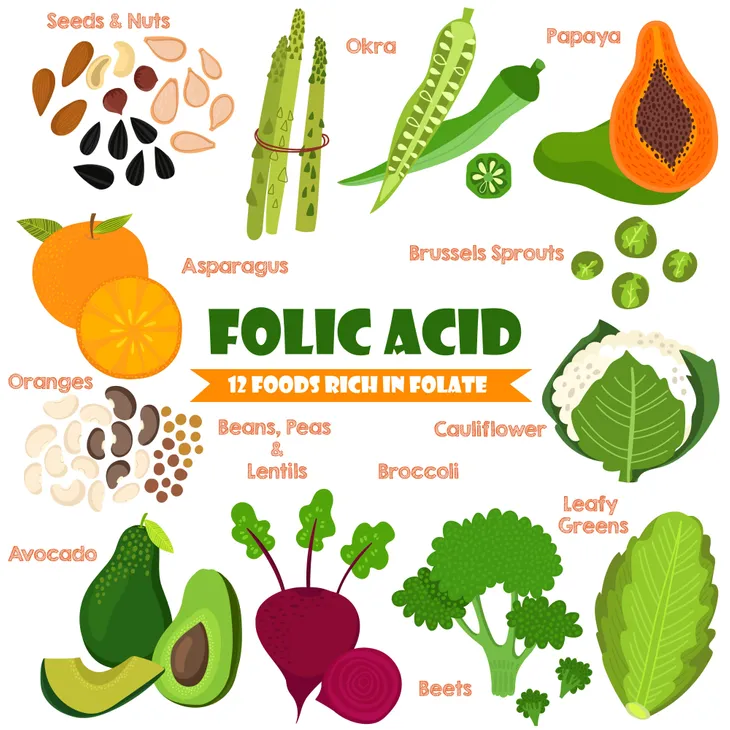Folate, also referred to as folic acid, is a type of B vitamin. Even though folate isn’t one of the most commonly talked about vitamins, it’s super important to our overall health. According to Healthline, folate is responsible for making and repairing DNA, as well as producing red blood cells (RBCs). Folate deficiencies often stem from diet, but there are numerous other factors that can cause folate deficiency.
Thankfully, in most cases, folate deficiency is easily treatable. However, if it goes untreated it can cause some serious complications. It’s also difficult to catch because the symptoms can be subtle and sometimes confused with other illnesses. To get better informed on everything to do with folate deficiency, here’s a look at the common causes, symptoms, complications, and some prevention tips…
Think you have a folate deficiency? Try One Elevated Folate Supplements – an Amazon bestseller with over 800 4.5+ consumer reviews. (As an Amazon Associate, this site may receive earnings from purchases).
Causes
What Causes a Folate Deficiency?
Now that we know what folate is, how does a folate deficiency happen? Healthline explains that folate is a water-soluble vitamin that dissolves in water, but isn’t stored in the fat cells. Since this vitamin isn’t stored in the body, we need to keep taking it in order to keep our folate levels up. The body isn’t capable of holding onto a reserve of folate which is why it doesn’t take long for a person to become deficient in folate.
To make matters worse, “people release excess amounts of water-soluble vitamins in their urine,” writes Healthline. So, as tempting as it is to take extra water-soluble vitamins, you’re body won’t hold onto the excess and instead, will just excrete it.
Don’t Eat Enough Folate-Rich Foods
A diet lacking in folate-rich foods is one of the most common causes of a folate deficiency, but most people are able to get all the folate they need from food. This is because many foods now contain folic acid, a synthetic version of folate. This is to prevent deficiency, says Healthline.
If you’re among the few that aren’t getting enough folate from food, you’re likely not eating enough leafy green vegetables, beans, citrus fruits, or whole grains, says WebMD. It doesn’t take long for an unhealthy diet to affect folate levels. It only takes a few weeks for a folate deficiency to appear, so try to be vigilant about eating these foods on a regular basis.
In addition to eating folate-rich foods, be wary of how long you’re cooking your food. If overcooked, it can sometimes destroy the vitamins, adds Healthline.
Too Much Alcohol
While having the odd drink here and there is fine, drinking in excess can do some serious damage to the body and result in a folate deficiency. WebMD explains that drinking too much alcohol over a long period of time can make it harder for the intestines to absorb folate.
Alcohol also increases folate excretion through the urine, says Healthline.
Disease
A folate deficiency can occur in people who have a “disease or genetic mutation that prevents [their] body from absorbing or converting folate into its usable form,” says Healthline. Diseases that affect absorption in the gastrointestinal tract which leads to folate deficiencies are Crohn’s disease, celiac disease, certain types of cancer, and severe kidney problems that require dialysis.
The intestine is where all of the nutrients from our food is absorbed, so if our stomach or small intestine isn’t functioning properly, it can cause the body to have a “hard time hanging on to as much folate as it needs,” writes WebMD.
Pregnancy
It’s not uncommon for a pregnant woman to have folate deficiency because the growing baby absorbs a lot of folic acid from its mother, says WebMD. Pregnant women also absorb folate acid slower than women who aren’t pregnant, notes John Hopkins Medicine.
Also, the Centers for Disease Control and Prevention (CDC) cites a study published in Journal of Nutrition which found that folate deficiency is common in women of reproductive age.
Medication
Even though medications are used to heal and treat us, some medications can come with harmful side effects. It’s up to the doctor to decide whether the benefits of a medication outweigh the risks. That being said, there are some medications that can cause folate deficiency by affecting whether the body can absorb this nutrient. The medications known to do this are, “phenytoin (Dilantin), trimethoprim-sulfamethoxazole, methotrexate, [and] sulfasalazine.”
Genetics
While most people become deficient in folate through outside factors like medication or diet, it is possible to be born with a folate deficiency. In this case a person is born with a genetic mutation that prevents their body from “properly and efficiently converting dietary or supplemental folate to its usable form,” explains Healthline.
Since it is a genetic problem it tends to run in families. This can be a serious health problem, particularly for an infant at risk of folate deficiency. In this case, it needs to be treated right away so that it doesn’t cause long-term problems, says WebMD.
Symptoms
What are the symptoms?
There are a wide range of symptoms associated with folate deficiency, and according to Healthline, they can be subtle. The main symptoms are, “fatigue, gray hair, mouth sores, tongue swelling, [and] growth problems,” writes the source.
When it comes to folic acid deficiency anemia, WebMD says you may also experience reduced sense of taste, diarrhea, a feeling of pins and needles or numbness in your hands and feet, muscle weakness, or depression. Healthline adds to this list by including, “persistent fatigue, weakness, lethargy, pale skin, shortness of breath, [and] irritability.”
Potential Complications
A folate deficiency can have some serious complications including megaloblastic anemia which means the red blood cells are larger than normal and not fully developed, explains Healthline. “Anemia can deprive your tissues of oxygen it needs because RBCs carry the oxygen. This may affect their function,” writes the source. It can also result in low levels of white blood cells and platelets.
Lastly, there’s a reason women who are trying to get pregnant should start taking folic acid. A folate deficiency can cause serious birth defects, particularly in the spinal cord and brain development of a fetus. These defects are referred to as neural tube defects.
Diagnosis and Treatment
How is it Diagnosed
To diagnose folate deficiency, a doctor will first ask about any symptoms. This will be followed up with a blood test and a complete blood count (CBC) to measure the number and appearance of your blood cells, says WebMD. A person who is suffering from a folate deficiency will have large red blood cells that look immature.
How Is It Treated?
If you are diagnosed with folate deficiency the first line of treatment is a healthy diet that includes folate-rich foods. You should begin eating foods like nuts, leafy green vegetables, enriched breads and cereals, as well as fruit.
In addition to this, you may also be required to take a folic acid supplement. “Folate is frequently combined with other B vitamins in supplements,” writes Healthline. “These are sometimes called vitamin B complexes. Pregnant women should completely avoid alcohol, and everyone else with a folate deficiency should decrease their alcohol intake.” You may be able to stop taking the supplement when your folate levels return to normal. But some people are required to take supplements for life, adds WebMD.
If your folate deficiency is a result of a genetic mutation, such as MTHFR which affects folate absorption, you may need to take a special type of folate called, methylated folate in order to avoid a deficiency, says Healthline.
Prevention
Healthy Diet and Supplements
As previously mentioned, the number one way to prevent folate deficiency is by eating a healthy diet full of folate-rich foods. Healthline provides a comprehensive list of folic-rich foods which includes: “leafy green vegetables, such as broccoli and spinach, Brussel sprouts, peas, citrus, fruits, such as bananas and melons, tomato juice, eggs, beans, legumes, mushrooms, asparagus, kidney, liver meat, pork, poultry, shellfish, wheat bran,” and lastly, fortified cereals.
In addition to eating folate-rich foods, the second best form of prevention is by taking a supplement. Every pregnant woman should be taking a folate supplement to ensure normal fetal growth, says Healthline. The recommended dose is 400-micrograms a day.
People who have been diagnosed with folate deficiency as a result of MTHFR, should avoid eating foods that are fortified with folic acid, explains Healthline. “Certain variants of this genetic mutation prevent the breakdown of folic acid to methylfolate,” adds the source.
If you’re someone who has developed a folate deficiency due to prescribed medications, you should start taking supplements, but don’t ever take any supplements without talking to your doctor first.

